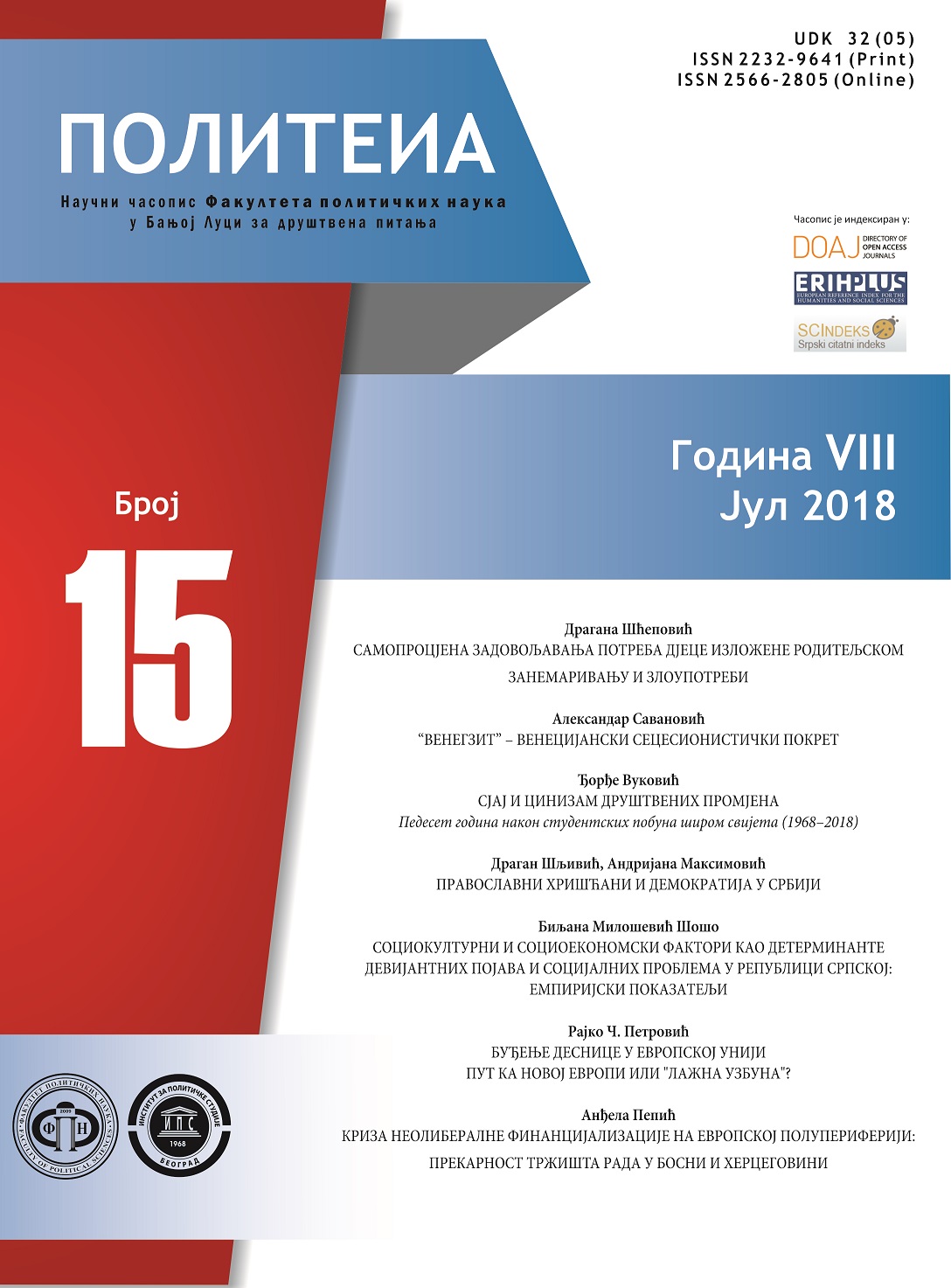Samoprocjena zadovoljavanja potreba djece izložene roditeljskom zanemarivanju i zloupotrebi
Self-assessment of satisfying the needs of children exposed to parental neglect and abuse
Author(s): Dragana ŠćepovićSubject(s): Social development, Social Theory, Family and social welfare, Welfare services
Published by: Fakultet političkih nauka Univerziteta u Banjoj Luci
Keywords: Parental neglect; parental abuses; children’s needs;
Summary/Abstract: The variety and complexity of the parental role is reflected in numerous tasks of parenting. Parents have the greatest responsibility for the development and formation of a child’s personality, in order to satisfy not only the existential, but also the other needs of the child. The subject of empirical research, with results that are presented in the paper, is the self-assessment of satisfying the needs of children with different experiences in relationships with parents. The main aim of the research is to examine whether there is a difference in the self-assessment of meeting the needs of children whose parents ignore parental duties and / or abuse parental rights, and children who grow up in functional families. In the research where used basic, general-purpose and methods of data collection (questioning and content analysis). The basic assumption from this research is that there is a difference in the self-assessment of satisfying the needs of children, whether parents ignore and / or maltreated children or provide responsible parenting. Parents of children from functional families and parents who ignore parental duties or abuse parental rights generally differ in the manner in which the child’s needs are perceived, the way in which they respond to them and how they meet them. This was assumed in special hypotheses that there is a difference in Self-assessment of the needs between groups of children from functional families and children from families under the supervision of the centre. The results obtained were, based on analyzes whose values were p = .564 (MANOVA analyzes) ip = .276 (discriminatory analysis), showed that there was no statistically significant difference and a clearly defined boundary between the two sub-surveys of the self-assessment of biological needs (.499 ), the need for security (.840), the need for belonging and love (.311) and the need for respect (.213). Based on the value of p = .172 (MANOVA analyzes) and p = .093 (discriminatory analysis), it was established that there is no difference, but there is a clearly defined boundary between the groups of respondents in relation to satisfying needs (growth motifs). The coefficient of discrimination indicates that the greatest contribution to the discrimination of groups of respondents is on dimensions: the need for self-actualization (.035), transcendental needs (.017) and the need for aesthetics (.004). The statistical analysis found that there is a difference and clearly defined boundary between groups in relation to satisfying needs (growth motives) and the following variables: age (12-13 years and 14 years), family structure (incomplete), success (good and very good / excellent). The results showed that there was no significant difference and a clearly defined boundary between the groups in relation to satisfying needs (lack of motives) and the following variables: age (12-13, 14, 15 and 16 years), family structure (complete), success (sufficient ) and gender (male and female). Based on the results obtained, it can be concluded that there are differences in the self-assessment of meeting needs between a group of children who grow up in functional families and groups of children whose parents ignore parental duties and / or abusing parental rights, and the effect of disrupted family relationships is especially noticed in relation to meeting needs (motifs of growth).
Journal: Politeia - Naučni časopis Fakulteta političkih nauka u Banjoj Luci za društvena pitanja
- Issue Year: 8/2018
- Issue No: 15
- Page Range: 9-31
- Page Count: 23
- Language: Serbian

